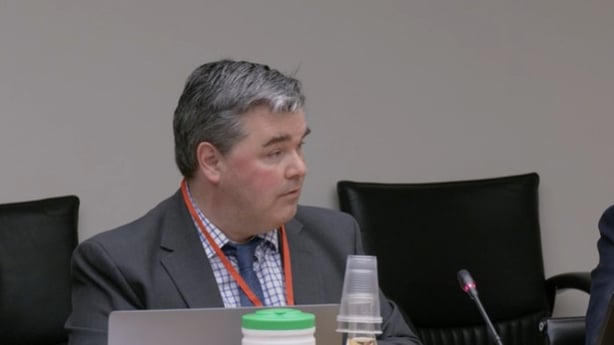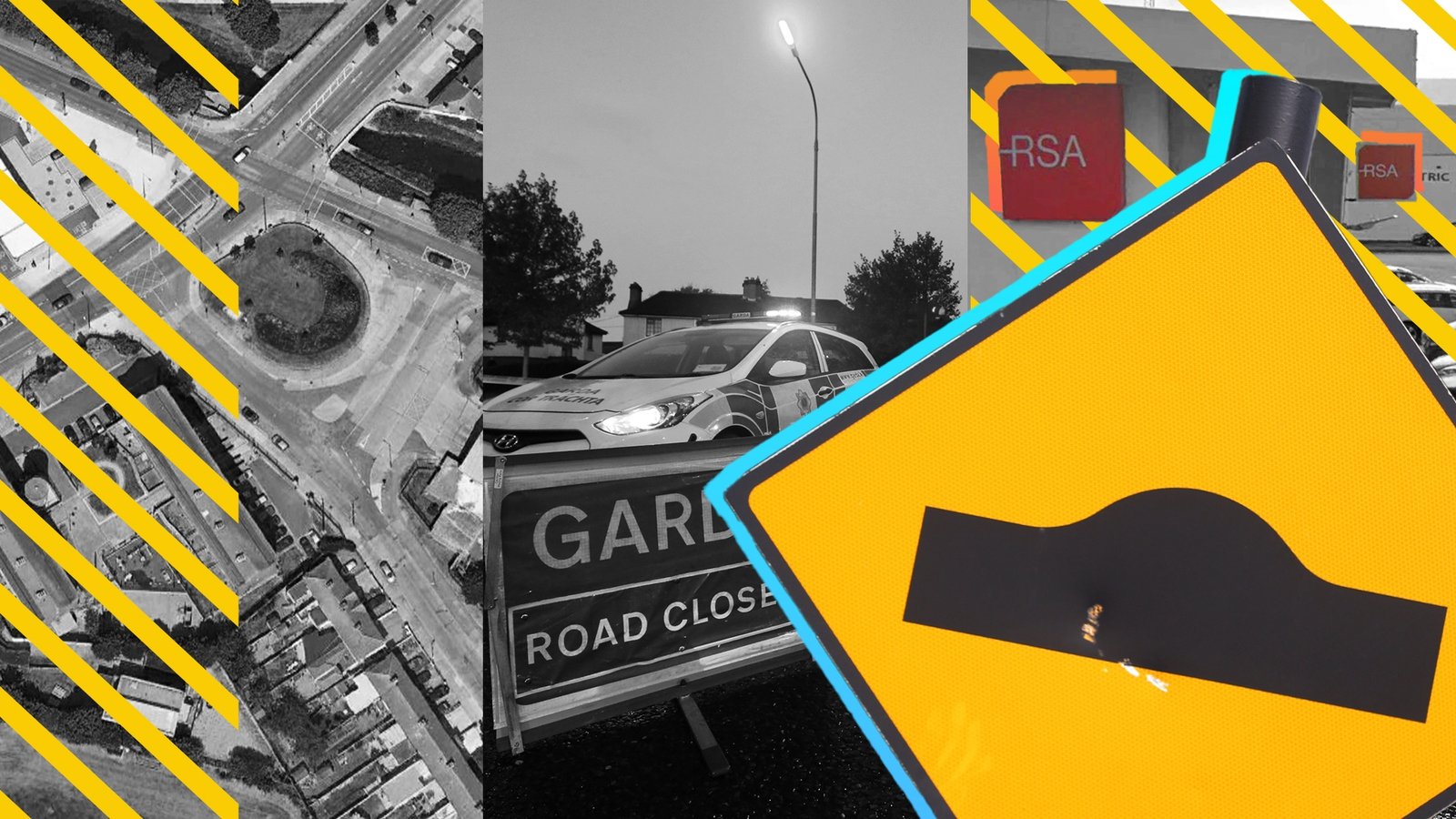Not enough or too much? The blow-up over the Online Safety Code

The media regulator Coimisiún na Meán is facing criticism in relation to new draft regulations published today called the Online Safety Code.
Some observers say a major opportunity has been missed to curb the power of recommender systems, which are used by social media companies to determine what content is shown to social media users.
Critics of the widespread use of such systems – also called algorithms – on social media say they drive societal radicalisation and can promote extreme and dangerous behaviour.
Yet Coimisiún na Meán says the code is part of a broader system of oversight which will be implemented at European level.
So has a major opportunity been missed, and what does the debate come down to?
Over the last number of years, concerns have been raised by researchers and advocacy groups about the harms of recommender systems in amplifying and suggesting harmful content to users including children.
Social media companies collect a vast amount of user data, like age, location, search history, and engagement rates. They use it to analyse user behaviour and then recommend content the algorithm says the user will continue to engage with.
A proposal to turn off that process – the recommender system – by default was consulted on during the development of draft code which was published today.
However, no proposals on the use of such systems are included in the document published.
As a result, experts like Dr Johnny Ryan of the Irish Council for Civil Liberties, have said Coimisiún na Meán has “u-turned” on the idea.
On News at One he said “what was on the way in December was a very elegant, simple, world-leading measure that would address toxic recommender systems across all of these platforms at a stroke, and put users in charge.”
“Something changed,” he added, “we do not know why there was this u-turn, but I suspect it is quite a significant problem.”
We need your consent to load this rte-player contentWe use rte-player to manage extra content that can set cookies on your device and collect data about your activity. Please review their details and accept them to load the content.Manage Preferences
For its part, the commission says any such proposal on requiring social media platform to set recommenders systems to be off by default was “not intended to be in the first Code.”
Coimisiún na Meán says it recognises that recommender systems can have harmful impacts on users, especially children, and that the regulation of recommender systems in relation to harmful content will be dealt with under the EU’s Digital Services Act (DSA).
The DSA was published in late 2022, and is considered to be a major recent piece of European legislation.
It came into force in Ireland in February and is designed to regulate the activities of social media platforms in Europe to “ensure user safety, protect fundamental rights, and create a fair and open online platform environment.”Yet it also covers a whole range other online activities and commerce, from major online retailers to domain name registration issues.
Coimisiún na Meán’s position is essentially that the new Online Safety Code does not need to include proposals on recommender systems, as regulation of them is covered by the DSA.
“Under our Online Safety Framework, Coimisiún na Meán will be best able to tackle the potential dangers of recommender systems through our implementation of the Digital Services Act,” it said.
Major platforms had opposed the idea that the Online Safety Code would impact on the use of such systems.
In its submission during the formulation of the Code, TikTok said “An Coimisiún has raised the clear possibility… of providing guidance on the use of recommender systems which goes significantly further than, and is in conflict with, the DSA approach on recommender systems.”
Critics of the approach taken by Coimisiún na Meán believe relying on European-scale law like DSA will make tackling what they view as an urgent societal issue slow and legally-cumbersome.
As many of the major platforms are EU-headquartered in Dublin, if a proposal had been introduced by Coimisiún na Meán to force platforms to turn off recommender systems by default, it would have had consequences for online users across Europe.
“We’re very disappointed. We’re frustrated. We’re upset because, you know, from our experience of observing hate and extremism online, the only way that we can really tackle this is to stop it being shared by the recommender system,” said Niamh McDonald of the Hope and Courage Collective (HCC).
The HCC works to counter online hate and disinformation. Ms McDonald says the code falls far short of what is needed to protect communities and dial down emotionally manipulative content spreading unchecked.
Recommender systems are “extraordinarily dangerous, and people should have choices here,” she added.
“Right now, hate and extremism and dangerous content is being delivered by the recommender system to everybody’s phones without our choice.”
By not regulating algorithms, Ms McDonald says, social media companies themselves will continue to be responsible for removing harmful content – after that content has already been amplified by its recommender system.
“We cannot trust them to take it down. So, in ways, it’s effectively still self-regulation.”
Had the suggestion to turn off recommender systems been included in the code, Ms McDonald says it would have lef to a “much safer online space.”
“People would have choice and also would mean there’s regulation, because right now there is no regulation,” Ms McDonald said.

Solicitor and Director of GDPR consultancy firm Data Compliance Europe, Simon McGarr, told Prime Time that “a lot of the criticisms that have been leveled at this draft code are valid” but the idea of regulating algorithms at an EU level could be positive in some ways.
“Under this code, they’ve decided not to proceed to treat it as though it was an online safety issue, but rather they’ve decided to deal with the algorithms under a different legal heading,” he said.
The Digital Services Act, according to Mr McGarr, has more “potential teeth in it, and also will involve a great deal more cross EU decision-making and cross-EU implementation.”
“As a result, it’s likely to be the right choice today that it’s not dealt with at an Ireland-only level, but that it’s moved up because these decisions, in terms of algorithms in particular, have significance not just in Ireland but for all of the EU’s users,” Mr McGarr said.
In other areas, like data protection, Mr McGarr says there has been friction between regulators in other EU countries, who complain that Ireland acts as a bottleneck.
“We don’t want a situation, ideally, where Ireland is the place where all the regulation falls upon. Ireland puts forward its own ideas in terms of regulation, and then you’re fighting with your European partners in terms of these things,” he said.
“It seems like it’s a better idea to try and approach this at a European wide level as to the hows and whys. And then Ireland is sort of the sharp end of the spear,” McGarr said.
The new code is just one piece of legislation that will fit into a much wider legislative framework on an Irish and EU level, Mr McGarr added. This framework will also include the EU Digital Services Act and the EU Terrorist Content Online Regulation, enforced in Ireland by Coimisiún na Meán.
“The code answers one part of Coimisiún na Meán’s approach,” Mr McGarr told Prime Time.
“It does not tell us the other thing Coimisiún na Meán will do under the other pieces of law yet, and so we haven’t yet seen the picture on the jigsaw puzzle.”
“We don’t know what the end point will look like. All we know is that this is the approach they’re taking in respect of this particular corner piece, which relates to the audio-visual directive and the online safety element.”
In general, Mr McGarr says the code is “simultaneously under-ambitious and overambitious.”
“I don’t agree with the priorities that it has taken,” Mr McGarr said.
“It puts a premium on locking down access to the Internet in such a way that at times it may prevent actual adults from speaking in public on networks – which are things like Twitter, things like TikTok, etcetera – in ways which will prevent them from having a freedom of speech in respect of these things.”

In terms of age verification, the new code says video sharing platforms which allow users to upload pornography or scenes of gratuitous violence will have to use age assurance so that children cannot encounter the content.
Coimisiún na Meán says it is also working with the European Commission to develop a pan-European approach to age assurance and age verification.
However, McGarr says there are issues with implementing age verification on social media platforms, especially when it comes to platforms collecting and storing more personal data like identity documents and photographs from users.
“If you make it so that there’s a record of people accessing social media platforms, if you make it so that people must prove who they are before they’re allowed go online and speak to their friends… then you have made a huge intervention in what has previously been a seamless and frictionless form of communication,” he said.
“I know why it’s done. It’s done for probably admirable reasons, but that doesn’t mean that we should just do it regardless of those consequences. I think the balance has been struck wrongly in this case,” he added.
Read more: ICCL expresses dismay as ‘toxic’ algorithms not covered by online safety code
A major issue with the code, Mr McGarr says, is that it fails to understand how social media platforms work.
“Effective regulation must start from the position of understanding the medium, and that it is a two-way medium, not a broadcast medium. This looks like a code for regulating a broadcaster, not a code for regulating speech between people, which is what this actually is about.”
The Online Safety Commissioner Niamh Hodnett said the code “is an important step forward to hold platforms to account for keeping people safe online.”
Meanwhile, the commission’s Executive Chairperson Jeremy Godfrey said: “Alongside our powers under the EU Digital Services Act and Terrorist Content Online Regulation, the Online Safety Code will give us a strong suite of tools to improve people’s lives online.”





